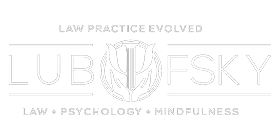Below I have summarized five suggestions to help clients move more mindfully through the divorce process:
- Settle
In contemporary American society, most of us are highly conditioned to avoid or turn away from difficult experiences, emotions, etc. The fracturing of a family unit or severance of a love relationship can precipitate fear about the future, questioning of the past, and a need to restructure one’s identity and life routines.A mindful, holistic approach to divorce embraces the notion that conflict between how things are and how we have become conditioned to think they should be presents unique opportunity to examine and move beyond this conditioning.The initial step in this process requires that you do not blindly react to this situation by running away or gravitating toward some sort of habitual strategy employed in the past to sidestep challenging feelings.Thus, the first step toward mindful divorce is to simply settle in. Relax. As upsetting as this experience may seem, realize that this will pass, and if handled in a skillful way, can lead you to a new level of inner peace and happiness. - Connect
Once you are able to settle and calm yourself, the process of transformation has a chance of taking hold. Try to find quiet time and space with minimal distractions and begin to connect with whatever feelings arise. If possible, it is more helpful to connect with the felt sense of what is arising in the body versus any thoughts you are attaching to these feelings. Feelings tend to reveal more “truth,” while thoughts are by their nature interpretive and judgmental. - Explore
In connecting to arising feelings, you are presented with an opportunity to explore what is going on with inner experience. At this point, most of us are conditioned to employ intellect to “figure out” what is going on. Instead, try to simply rest in awareness, simply witnessing whatever feelings arise. With time, practice, and support, you will find that wisdom is the direct product of clear, heightened awareness – not intellectual analysis. - Non-Attachment
In beginning to explore arising feelings that arise once the mind has settled, you may well find that thoughts then arise in response to these feelings. These thoughts, as alluded to above, will often try to interpret or “make sense” of these feelings in a highly conditioned way. In other words, you may try to impose meaning on these feelings that square with ways in which you have come to view your “self” or your life.The imposition of intellectual meaning on feelings or thoughts that arise can operate to further solidify a sense of “self” that can be very limiting. Try instead to simply allow these feelings and thoughts to arise and cease as they naturally will. You will find that by practicing this non-attachment you will become less burdened by learned conditioning and habitual reactions. This freedom will give rise to far more flexible and effective action as we navigate the legal aspects of your divorce. - Engage
The above steps in mindfulness practice will facilitate clarity and reduce reactivity. You will soon feel on an intuitive level that you are ready to move forward and engage more fully in your life in general and your family/marriage situation in particular. My holistic approach integrating mindfulness and law practice will provide ongoing support and direction as we implement an optimal strategy to serve the best interests of all involved.
To learn more about holistic law practice integrating mindfulness and law, visit http://www.Holistic-Lawyer.com, or call Michael Lubofsky at (415) 508-6263.

